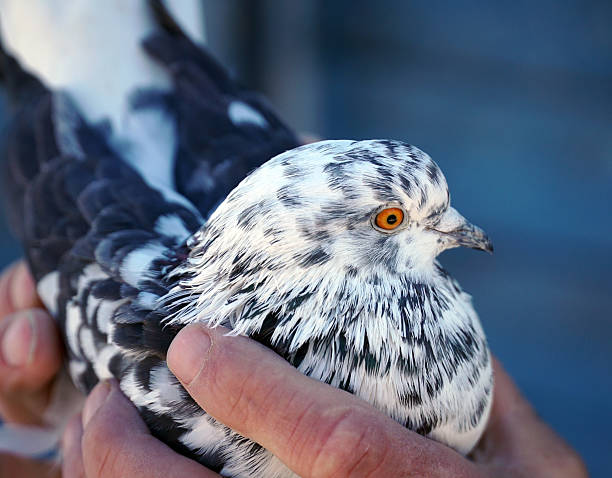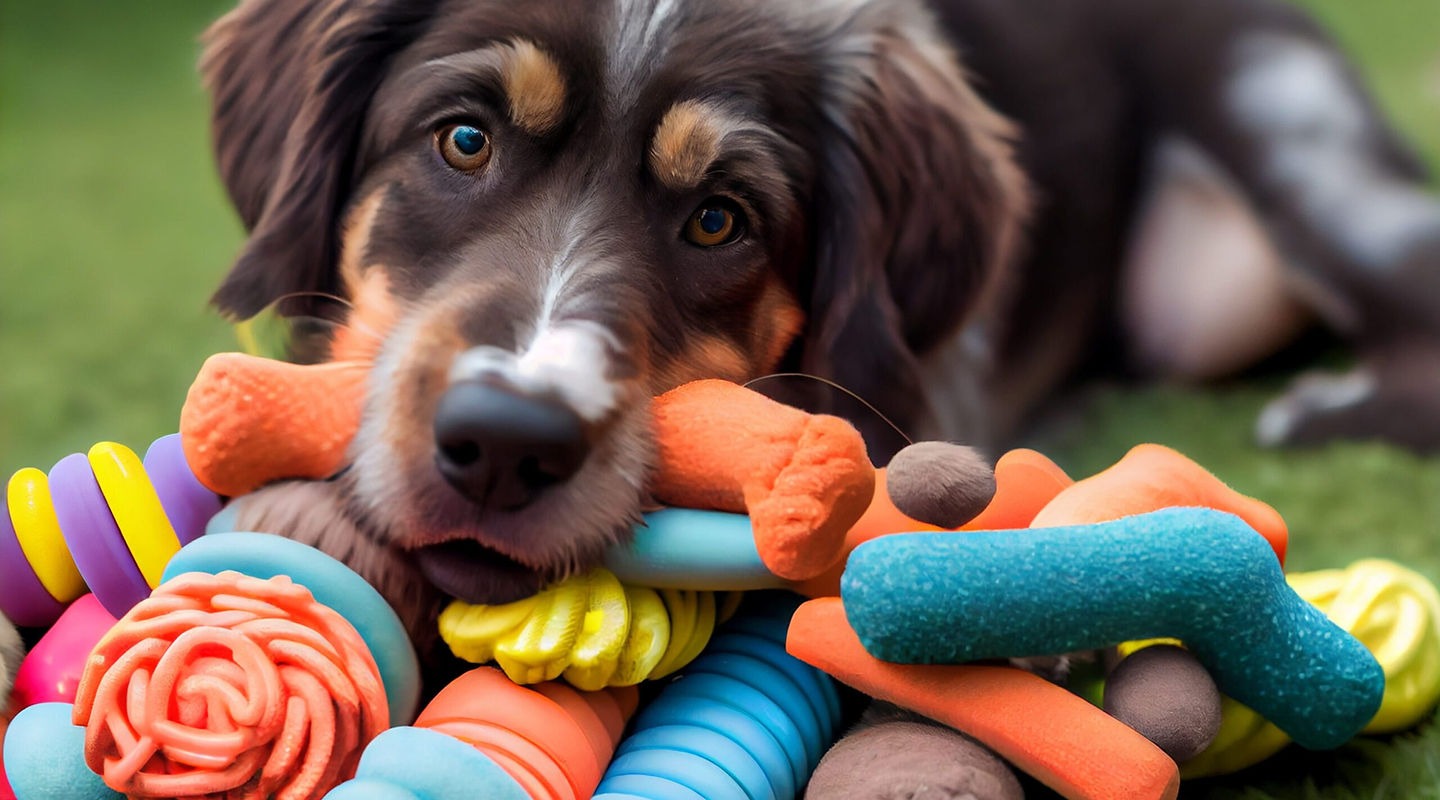
Pet Pigeons: The Loyal Companions You Didn’t Expect
Discover the surprising loyalty and intelligence of pet pigeons, their unique care needs, fascinating history, and why they are increasingly cherished as affectionate, low-maintenance companions in modern homes.
🐶 Pet Star
26 min read · 30, May 2025

Introduction: The Rising Popularity of Pet Pigeons
Pigeons, often overlooked as common city birds, are gaining recognition as remarkable pets. Known for their intelligence, sociability, and loyalty, pet pigeons make surprisingly affectionate companions. Their history spans thousands of years alongside humans, serving as messengers, symbols, and even athletes in competitive racing.
This article delves into the multifaceted world of pet pigeons, exploring their biology, behavior, care requirements, and the deep bonds they can form with their owners. Whether you live in an apartment or a house, keeping pigeons as pets is an accessible and rewarding experience. We'll explore how these birds thrive in home environments, the unique joys of pigeon companionship, and the challenges of their care.
The History of Pigeons as Pets and Helpers
From Messenger Birds to Modern Companions
Pigeons have been domesticated for over 5,000 years, initially valued for their ability to carry messages across vast distances. Their homing instinct and speed made them vital during wartime and for communication before the digital age. Today, pet pigeons retain many of those qualities but have also evolved into companion animals cherished for their personalities.
Symbolism and Cultural Significance
Across cultures, pigeons have symbolized peace, love, and endurance. Famous stories of pigeon heroes in wars highlight their intelligence and reliability. This rich history informs modern appreciation and responsible pet ownership.
Understanding Pet Pigeons: Species and Traits
Popular Breeds for Pet Owners
- Homers: Known for their exceptional homing ability and gentle temperament.
- Fantails: Recognizable by their fan-shaped tail feathers and calm disposition.
- Rollers: Known for acrobatic flight patterns and playful behavior.
- Modenas: Robust and calm, suitable for beginner keepers.
Each breed offers unique traits, influencing care and interaction styles.
Behavioral Characteristics
Pigeons are social, intelligent, and form strong bonds with their owners. They communicate through coos and body language, responding well to training and affection. Their curious nature means they enjoy exploring their environment and interacting with humans.
Setting Up a Comfortable Home for Your Pet Pigeon
Housing Requirements
Pigeons need spacious, well-ventilated lofts or aviaries with protection from extreme weather. For indoor pigeons, large cages with ample space for flight and exercise are essential. Provide perches, nesting areas, and safe zones for retreat.
Cleanliness and Maintenance
Regular cleaning prevents disease and promotes well-being. Use bird-safe cleaning agents and provide fresh bedding. Pigeons are clean birds but need support maintaining hygiene, especially in confined spaces.
Nutrition and Feeding: Fueling Your Pigeon’s Health
Diet Basics
Pigeons thrive on a balanced diet of grains, seeds, legumes, and specially formulated pellets. Fresh vegetables and occasional fruits supplement their diet. Clean water should always be available.
Supplements and Treats
Calcium supplements support bone health and eggshell production. Treats like millet sprays encourage foraging and enrich feeding routines.
Health and Wellness: Keeping Your Pigeon Vibrant
Common Health Issues
Respiratory infections, parasites, and nutritional deficiencies are the most common concerns. Regular vet checkups and preventive care are vital.
Recognizing Signs of Illness
Watch for lethargy, changes in appetite, unusual droppings, or respiratory distress. Early intervention improves outcomes.
Training and Bonding: Building a Lasting Relationship
Socialization Techniques
Consistent, gentle handling from a young age fosters trust. Talking to pigeons and offering treats during interaction helps strengthen bonds.
Flight Training and Exercise
Encouraging free flight in safe, enclosed areas promotes physical health and mental stimulation. Training pigeons to return to their loft enhances safety.
The Emotional Benefits of Keeping Pet Pigeons
Companionship and Mental Health
Pigeons’ affectionate nature provides emotional comfort. Studies show bird keeping can reduce stress and improve mood.
Unique Owner-Pet Dynamics
Unlike more common pets, pigeons offer subtle communication and loyalty, appealing to owners seeking a quieter, devoted companion.
Challenges of Keeping Pet Pigeons in Urban Environments
Space Constraints and Noise Considerations
Though quieter than many birds, pigeons can vocalize and require space to fly. Urban owners must balance these needs with neighbors and housing restrictions.
Legal and Ethical Considerations
Some areas regulate pigeon keeping. Responsible ownership includes ensuring birds do not become nuisances and respecting local wildlife laws.
The Role of Pigeons in Therapy and Education
Pigeons as Therapy Animals
Beyond companionship, pigeons are increasingly recognized for their therapeutic benefits. Their calm demeanor and predictable behavior can provide comfort to individuals with anxiety, depression, or cognitive challenges. Studies in animal-assisted therapy suggest that interacting with birds, including pigeons, can lower blood pressure and improve emotional regulation.
Programs incorporating pigeons in schools and care centers help teach responsibility and empathy. Observing and caring for these birds fosters a connection with nature and enhances emotional intelligence, especially in children and people with special needs.
Educational Benefits
Pet pigeons serve as excellent ambassadors for urban wildlife education. Their history and biology provide fascinating learning opportunities for all ages. They also challenge common misconceptions about pigeons, demonstrating their intelligence and social complexity. Educational programs often include lessons on bird biology, environmental stewardship, and animal ethics.
Innovative Housing Solutions for Urban Pigeon Keepers
As urban spaces shrink and living arrangements evolve, pigeon enthusiasts are pioneering creative housing solutions to accommodate their birds without disturbing neighbors.
Compact Loft Designs
Compact lofts incorporate vertical space with multi-level perches and platforms, maximizing room in small backyards or balconies. These designs ensure ample flight space while integrating aesthetic elements like plants and natural wood to mimic outdoor environments.
Indoor Aviaries
For those without outdoor space, large indoor aviaries are becoming popular. Equipped with UV lighting and climate controls, these enclosures replicate daylight cycles and temperature fluctuations critical for pigeon health. Transparent panels allow pigeons to observe their surroundings, stimulating their curiosity.
Noise Reduction Techniques
Though pigeons are relatively quiet, soundproofing with acoustic panels or situating lofts away from neighbors minimizes any disturbances. Early socialization reduces excessive vocalizing, ensuring peaceful cohabitation in densely populated areas.
The Environmental Impact and Ethical Considerations of Pet Pigeon Keeping
Sustainable Pet Ownership
Responsible pigeon keeping includes environmental mindfulness. Using recycled materials for cages, sourcing organic feeds, and managing waste through composting help reduce ecological footprints.
Avoiding Wild Capture
Ethical keepers emphasize purchasing pigeons from reputable breeders or adopting from rescue organizations. Capturing wild pigeons disrupts local ecosystems and can introduce diseases.
Conservation and Community Outreach
Some pigeon keepers actively participate in conservation efforts, such as monitoring local pigeon populations and educating the public about humane treatment. These initiatives promote biodiversity and foster respect for all urban wildlife.
Conclusion
Pet pigeons are truly the loyal companions many people never expected to find. Their rich history as messengers, their remarkable intelligence, and their affectionate social behaviors make them uniquely rewarding pets. Unlike more common pets, pigeons offer a combination of gentle companionship and stimulating interaction that can enrich any home environment, urban or rural. They adapt well to a variety of living situations, and with proper care, they thrive both physically and emotionally.
Caring for pet pigeons requires dedication to providing appropriate housing, nutrition, and healthcare, but the payoff is a deep bond built on trust and mutual understanding. As urban dwellers look for novel ways to connect with nature, pigeons stand out as a viable and fulfilling option. Their low maintenance compared to some pets, combined with their quiet charm, means they fit seamlessly into modern lifestyles.
Moreover, pigeons contribute to emotional well-being by offering companionship that reduces stress and loneliness. They also provide opportunities for education and conservation awareness. Their presence inspires owners to learn about avian biology, environmental ethics, and responsible pet ownership.
In summary, adopting pet pigeons opens a door to a remarkable world of loyalty, intelligence, and companionship that defies common stereotypes. Whether you are a first-time bird owner or a seasoned enthusiast, pigeons offer a unique and enriching experience. They are, indeed, the loyal companions you didn’t expect—quiet yet affectionate, independent yet deeply social, and simple yet endlessly fascinating.
Q&A: Pet Pigeons – The Loyal Companions You Didn’t Expect
Q1. Are pigeons good pets for beginners?
A: Yes, pigeons are relatively low-maintenance and adapt well to captivity, making them suitable for beginner bird owners, especially if you provide proper care and housing.
Q2. How much space does a pet pigeon need?
A: Pigeons require ample space to fly and exercise. A large cage or loft with room for short flights and perches is ideal, along with safe outdoor or indoor flight time when possible.
Q3. What do pet pigeons eat?
A: Their diet includes grains, seeds, legumes, and formulated pellets, supplemented with fresh vegetables, fruits, and clean water daily.
Q4. Can pigeons be trained?
A: Absolutely. Pigeons are intelligent and can learn to recognize their names, come when called, and perform simple tricks through consistent, positive reinforcement training.
Q5. How social are pet pigeons?
A: Pigeons are highly social and often form strong bonds with their owners and other pigeons. They enjoy interaction and companionship.
Q6. Do pigeons make noise?
A: Pigeons coo softly but are generally quiet birds compared to other pet birds, making them suitable for apartment living if space and noise are managed.
Q7. What common health issues affect pet pigeons?
A: Common problems include respiratory infections, parasites, and nutritional deficiencies, which can be minimized by good husbandry and regular vet visits.
Q8. Can pigeons live indoors?
A: Yes, with a large enough aviary or flight cage, pigeons can thrive indoors, provided they receive adequate exercise and environmental enrichment.
Q9. Is it ethical to keep pigeons as pets?
A: Yes, as long as you source birds responsibly from breeders or rescues and provide humane, enriched care that meets their physical and psychological needs.
Q10. Do pigeons require special grooming?
A: Yes, pigeons benefit from regular bathing, occasional nail trimming, and beak maintenance using cuttlebones or mineral blocks to stay healthy.
Similar Articles
Find more relatable content in similar Articles

Sustainable Pet Products: What to Look for in 2025...
As sustainability becomes a ce.. Read More

How Pets Strengthen Family Bonds...
Pets are more than just compan.. Read More

Vegan Pet Toys and Accessories That Last Longer...
As pet owners grow more eco-co.. Read More

How Climate Change Affects Wild and Domestic Animals...
Climate change is dramatically.. Read More
Explore Other Categories
© 2024 Copyrights by rPets. All Rights Reserved.